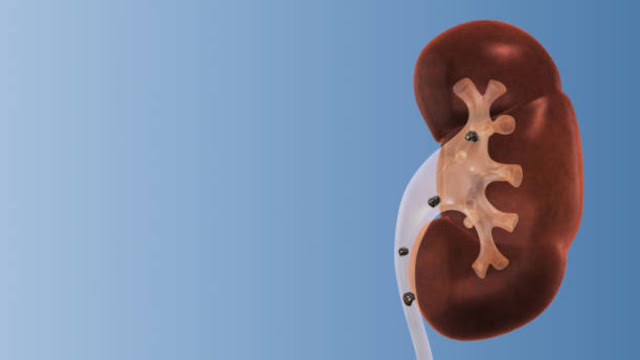Who Can Benefit from Health DEIT?

A healthy diet is essential for everyone, regardless of age,
gender, or lifestyle. A well-balanced and nutritious diet can provide numerous
health benefits and contribute to overall well-being. The concept of a
"health DEIT" refers to a adapted diet plan that takes into account
an individual's specific dietary needs, preferences, and health goals. This
type of diet can benefit a wide range of people, including those seeking to
improve their physical health, manage chronic conditions, lose weight, boost
energy levels, or enhance their mental well-being. In this article, we will
explore different groups of individuals who can benefit from a health DEIT.
Individuals with Chronic Diseases: Many chronic conditions,
such as heart disease, diabetes, hypertension, and obesity, can be managed or
even prevented through dietary interventions. A health DEIT can help
individuals with chronic diseases make healthier food choices, reduce their
intake of unhealthy fats, sodium, and added sugars, and increase their
consumption of nutrient-dense foods like fruits, vegetables, whole grains, slender
proteins, and healthy fats. Such a diet can support disease management, improve
blood sugar control, reduce cholesterol levels, lower blood pressure, and
promote weight loss.
Weight Management Seekers: Obesity and overweight are
prevalent health issues worldwide and are associated with an increased risk of
various wellbeing problems, including heart disease, type 2 diabetes, certain
cancers, and joint problems. A health DEIT can be beneficial for individuals
looking to manage their weight effectively. It can provide guidance on portion
control, calorie moderation, and choosing nutrient-dense foods that promote
satiety and help in weight loss. Furthermore, a personalized diet plan can
address specific dietary needs, preferences, and lifestyle factors, making it
easier for individuals to stick to a sustainable and enjoyable eating pattern.
Athletes and Active Individuals: Athletes and individuals
engaged in regular physical activity have unique nutritional needs to support
their performance, endurance, and recovery. A health DEIT can optimize nutrient
intake, ensuring an adequate supply of macronutrients (carbohydrates, proteins,
and fats) and micronutrients (vitamins and minerals) for energy production,
muscle repair, and overall well-being. Additionally, it can help athletes maintain
a healthy body weight, promote muscle growth, reduce the risk of injuries, and
enhance exercise performance.
Pregnant Women and Nursing Mothers: Pregnancy and lactation
are periods of increased nutrient needs to support the growth and development
of the fetus and to provide adequate nutrition for the mother's body. A health
DEIT can provide essential nutrients such as folic acid, iron, calcium, omega-3
fatty acids, and protein that are crucial for the health of both the mother and
the baby. It can help pregnant women manage their weight gain, prevent nutrient
deficiencies, reduce the risk of gestational diabetes and preeclampsia, and
support healthy fetal development. Similarly, breastfeeding mothers can benefit
from a personalized diet plan to ensure an adequate supply of nutrients for
milk production and to support their own nutritional needs.
Older Adults: As people age, their nutritional needs change,
and they may require fewer calories but higher amounts of certain nutrients. A
health DEIT can help older adults meet their specific dietary requirements and
maintain their overall health and vitality. It can focus on foods rich in
calcium and vitamin D to support bone health, incorporate sufficient fiber to
promote digestive health, and emphasize antioxidants and anti-inflammatory
foods to combat age-related oxidative stress and inflammation. Moreover, a
personalized diet can address age-related conditions like osteoporosis,
cognitive decline, and cardiovascular diseases.
Individuals with Food Allergies or Intolerances: Many
individuals suffer from food allergies or intolerances, which can lead to
digestive discomfort, nutrient deficiencies, and other health issues. A health
DEIT can help identify and eliminate allergens or intolerant foods from the
diet while ensuring that the individual still receives all the necessary
nutrients. It can provide suitable alternatives, recipes, and meal plans that
are free from specific allergens or intolerant substances, making it easier for
individuals to adhere to a safe and balanced diet.
Mental Health and Well-being: Research suggests a strong
connection between diet and mental health. A health DEIT can include foods that
support brain function, mood regulation, and overall mental well-being. For
example, a diet rich in omega-3 fatty acids, B vitamins, magnesium, and
antioxidants has been linked to a reduced risk of depression and anxiety.
Conversely, diets high in processed foods, sugar, and unhealthy fats have been
associated with an increased risk of mental health disorders. By adopting a
personalized diet plan that focuses on nutrient-dense foods and avoids harmful
ingredients, individuals can promote their mental health and enhance their
overall well-being.
In conclusion, a health DEIT can benefit a wide range of
individuals, including those with chronic diseases, individuals seeking weight
management, athletes and active individuals, pregnant women, older adults,
individuals with food allergies or intolerances, and those aiming to improve
their mental health and well-being. It is important to note that a health DEIT
should be personalized and tailored to individual needs, taking into
consideration factors such as medical history, lifestyle, cultural preferences,
and dietary restrictions. Consulting with a registered dietitian or healthcare
professional can provide the necessary guidance and support to develop an
effective and sustainable health DEIT.
